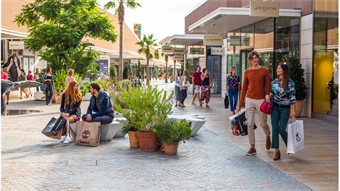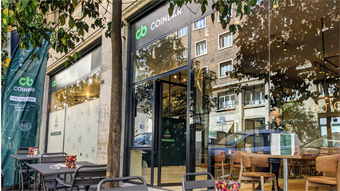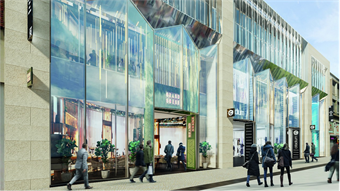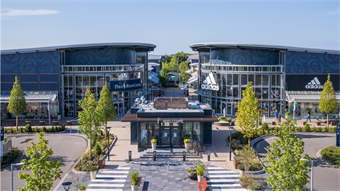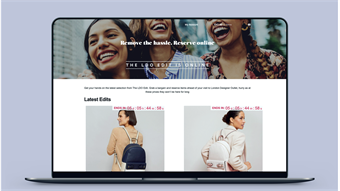JLAB: Partnering for the future of retail
- In Innovation
- 11:13, 02 December 2019
- 1600 Views
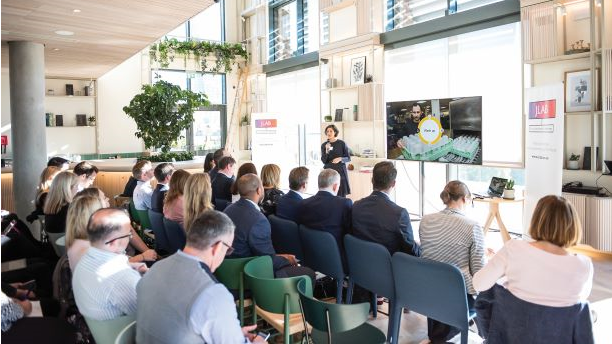
Breaking into the retail big leagues can often be very daunting and challenging for young and growing businesses with amazing ideas. But John Lewis Partnership’s JLAB is among the growing number of programmes that encourage and develop ideas from super-smart innovators that want to breathe fresh ideas into retail.
Established companies across retail and retail real estate can often be forgiven for forgetting how to inject new and fresh ideas into their businesses. Some companies rightly boast a decades-long heritage or experience dating back a couple of hundred years or even more.
But when it comes to injecting innovative, revenue-generating, experience-enhancing or cost-minimising solutions, traditional cultures can often limit fresh ideas from being generated from within their own corporate culture. On the back of the new-found favour for entrepreneurship in the years following the global financial crisis that burst through the world in 2009, start-ups and advanced scale-up companies have grown up in every part of the globe. Their numbers have skyrocketed in the last 10 years – and these high-potential, fast-growing businesses are often considered to be the lifeblood of many economies.
NURTURING ENTREPRENEURS’ IDEAS
The start-up and scale-up ecosystems that have rapidly evolved to nurture and support new and cutting-edge ideas have developed many incubator and accelerator programmes. They help entrepreneurs grow, from developing ideas and revenue streams to accessing the small-business growth equity and finance markets. JLAB was initially established in the retail partnership’s IT function, and then moved into its JLP Ventures team last year.
JLP Ventures was created to develop new customer propositions for John Lewis & Partners and Waitrose & Partners. According to Helen West, JLAB lead at the John Lewis Partnership: ‘Moving to JLP Ventures has helped the business understand the role of JLAB better and the benefit of external innovation inputs.’
The John Lewis Partnership is particularly keen on hearing from innovative businesses – start-up and scale-up companies – that are generating revenue and want to partner with the partnership to shape the future of retail. There are over 50 department stores in the John Lewis Partnership, from the south of England to Wales and northern Scotland. Waitrose & Partners has about 350 shops across the UK, including 65 Little Waitrose convenience shops, making it the eighth largest retailer of groceries in the UK.
INNOVATION ENSHRINED IN CULTURE
Rather than being a reaction to contemporary trends in retail disruption and innovation, JLAB reflects John Lewis Partnership’s long-standing cultural ethos. And it’s an approach that could prove inspirational to other established brands. ‘The John Lewis Partnership exists today because of the extraordinary vision and ideals of its founder, John Spedan Lewis, who believed in experimentation and openly encouraged it to keep up with our always-changing society,’ says West. ‘JLAB was established in 2014 to highlight and encourage this vision and enable the partnership to build entrepreneurs of the future and is one of the largest retail innovation programmes in the UK,’ she explains.
WHAT'S ON OFFER FOR SMALL BUSINESS?
As part of the JLAB programme, selected start-ups have the opportunity to test their products and explore how to develop and grow their businesses.
TESTING Innovations instore and online, and during regular meetings at John Lewis Partnership offices.
INVESTING IN THE FUTURE Businesses get support and help to develop commercial opportunities.
REACHING THE RIGHT PEOPLE Access to the retail giant’s network and links to finding big customers.
SCALING UP IDEAS Industry-focused leaders help the businesses to understand how to scale.
MAKING THE SHORTLIST
More than 160 businesses made the long list in the latest JLAB round, out of which just six successful start-ups were selected. Covering a diverse geographic range – from Palo Alto to London to Tel Aviv – the six specialise in areas as diverse as window display customer interaction, virtual product testing and try-ons, and sustainable approaches to farming.
LETTUS GROW, BRISTOL, embraces the use of retail space in their pursuit of a more sustainable approach to farming. Its technology could reimagine the world of farming and community gardening by growing plants without soil.
MAKERS CAFÉ, LONDON, offers personalisation through 3D printing and laser cutting on customers’ products and gift purchases.
MEMOMI, PALO ALTO, lets customers virtually try on fashion and test beauty products, providing an innovative way for customers to choose and access personalised recommendations based on image profiles and preferences.
ORIIENT, TEL AVIV, helps customers browse products they want in shops and further explore the store experience through their smartphone.
RUUBY, LONDON, lets customers book beauty treatments in various locations: at home, in the office or their hotel.
SELOY LIVE, HELSINKI, transforms shop windows into huge interactive displays which customers can engage with and control from their fingertips. A panel of judges heard pitches from 11 contenders to arrive at the final six that have been working with the John Lewis Partnership to explore how their solutions might be rolled out across the business
NUTURING FRESH TALENT - A Q&A WITH JLAB'S HELEN WEST
Retail Watch caught up with Helen West, lead on the JLAB incubator programme, and asked how a retail giant embeds this concept into its culture and how innovation feeds through to customers.
rw: For large retail groups like John Lewis Partnership, how much emphasis is placed on seeking innovation inputs from outside of your businesses compared with innovation from within? And to be open to both, have there been cultural and leadership hurdles you’ve had to overcome to grow the JLAB programme over the past six years?
HW: JLAB enables start-ups and established businesses to pitch and then trial their innovative products and services with the John Lewis Partnership. In 2018 we expanded it to run all year round and recent successes include rolling out customer supper clubs with WeFiFo to 42 Waitrose & Partners shops following a successful trial. And CupClub, which has developed a returnable drinks cup service to help reduce the use of disposable drinking cups, will be piloted in the partnership’s head office in 2019. A big cultural challenge that we have had to overcome is that it isn’t the best solution to always do innovation ourselves. We know that we don’t have all the answers and it is a necessity, not a luxury, to seek innovation and agitation from external sources, and we are encouraging the partnership to be aware of and actively seek external solutions on a regular basis.
rw: When you consider the pitches that established and start-up companies make during the JLAB pitching process, how much of your selection process focuses on business ideas that are wholly visible and directly beneficial to customers rather than those that focus on less visible back-end solutions?
HW: We have shifted the focus of JLAB from a selected number of pitch days a year to an ‘always-on’ programme where we work to find innovative businesses to help us solve relevant business problems brought to us from John Lewis & Partners and Waitrose & Partners. We use our link with True – Europe’s only retail and consumer sector specialist, operating across the entire investment vertical – to help find these businesses, and if we find one that we think has potential we do a proof-of-concept trial with them. Our pitch days were previously more focused on customer-facing solutions, but with our new set-up we now very much focus on both front- and back-end solutions. If we think a business can help us solve a problem, we are interested.
rw: In terms of your selection process, how would you prioritise the following considerations: digital transformation, enhanced customer experience, sustainability, cost savings, and developing new revenue streams?
HW: It really depends on the business problem we are trying to solve as to which order we would prioritise these. Delivering excellent customer experience and sustainability are core to our business, but we need to ensure we are continuously digitally transforming, developing new revenue streams and looking to minimise our costs in order for our business to stay relevant and succeed.
rw: Are successful companies in the JLAB programme most likely to have concrete ideas and strategies in place to scale their businesses across your entire platform? How well prepared are applicants in truly understanding how they can scale up when they pitch?
HW: Successful companies are the ones that have thought about how they can specifically bring benefit to the partnership. They are able to articulate how this could be demonstrated through a (smaller) trial to prove value, and can bring a proposed plan as to how this could be scaled across the partnership. Companies also need to be adaptable, solution-orientated and aware of our cadence as a retailer, such as our busiest period is over Christmas.
rw: Is your ultimate ambition to grow relationships with successful JLAB participants as exclusive commercial arrangements or to acquire those businesses to become part of your partnership structure?
HW: We are open to both. JLAB has been focused primarily on exclusive commercial arrangements, but this isn’t to say we wouldn’t acquire if it was a perfect fit for our business strategy


